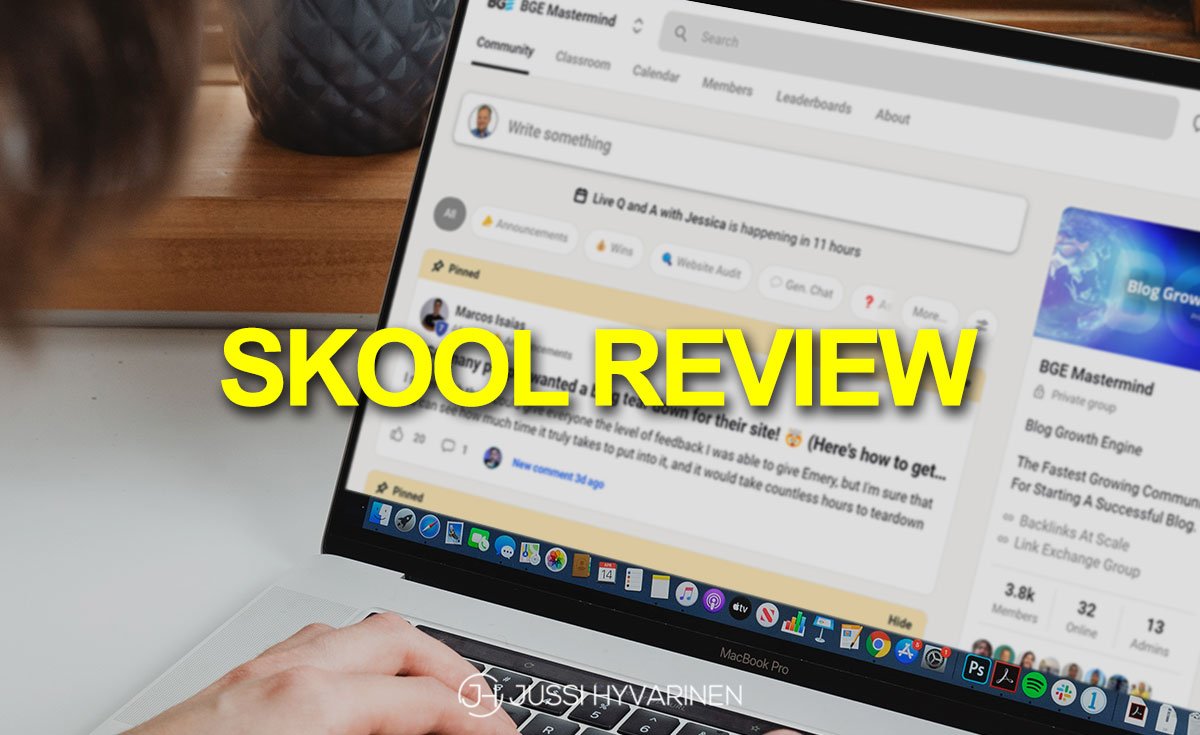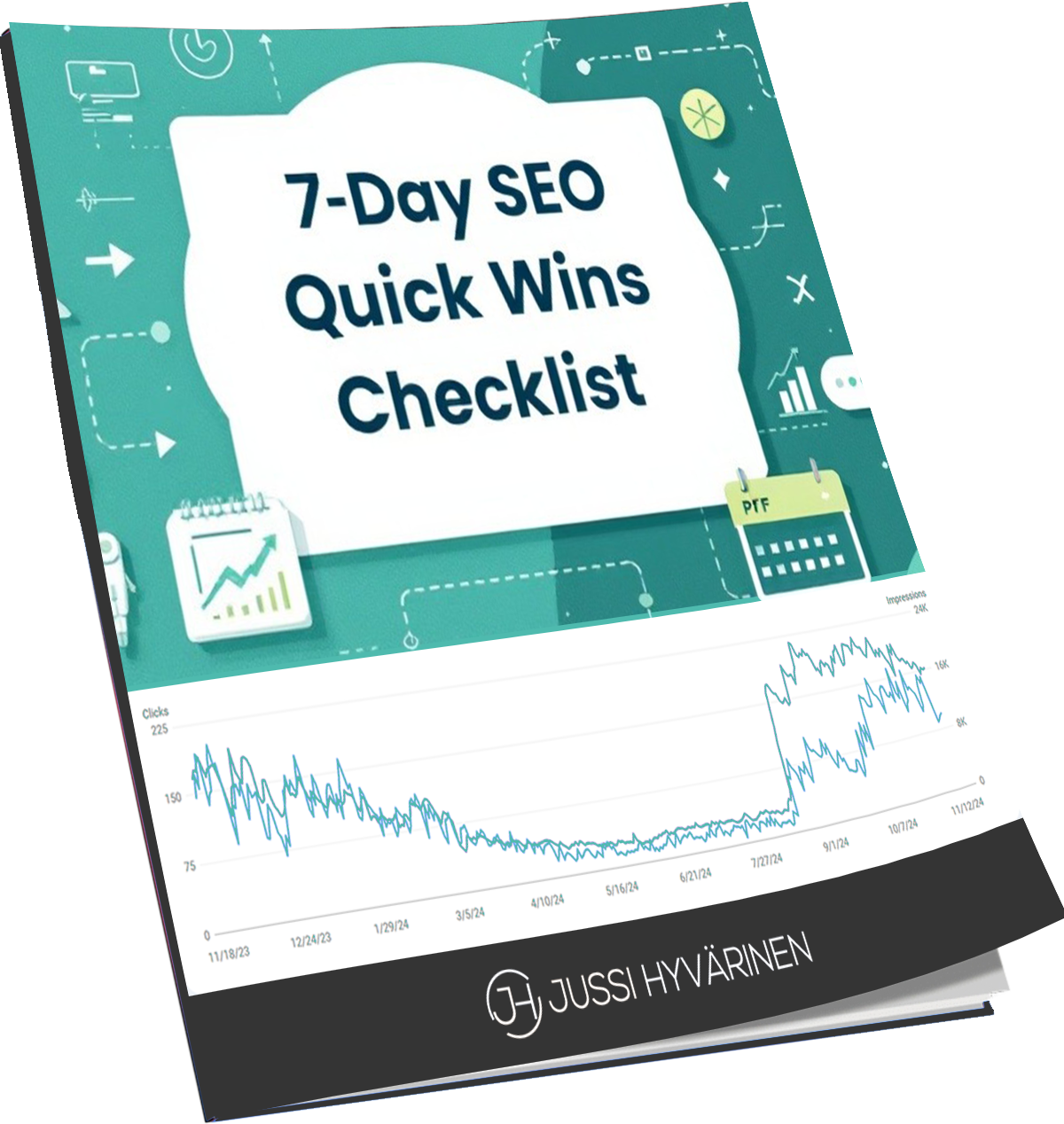Suppose you're a coach, consultant, educator, or entrepreneur looking to build an engaged online community, host online courses, run live events, and bring everything together in one place. In that case, Skool may be the platform for you.
In the past few years, I've used Skool extensively as a community owner and an active member. With first-hand experience, I can comprehensively review Skool, its features and pricing, and whether it's worth considering for your business.
What is Skool?

Skool is an all-in-one platform that allows you to build online communities, host courses, schedule events, and more. Founded in 2019 by entrepreneur Sam Ovens, Skool aims to be the central hub for your audience by combining the key elements of community engagement, course hosting, calendars, and gamification.
Here are some of the problems Skool sets out to solve:
- Community platforms like Facebook Groups can be distracting and difficult to control. Skool offers a private, ad-free community space.
- Many course platforms lack vibrant community engagement. Skool puts the community front and center.
- Managing separate tools for courses, community, and calendars causes headaches. Skool consolidates these.
- Low course completion rates are a common struggle. Skool uses gamification to boost engagement.
- Creating sales funnels requires technical know-how. Skool makes membership sites easy.
In a nutshell, Skool provides the tools you need to engage your audience, teach online courses, run events, and monetize your knowledge, all in one sleek platform.
Skool's Core Features
Skool includes several key features to help you build and manage an online community. Let's look at some of the main ones:
Robust Community Features
At the heart of Skool is the community feed, similar to Facebook groups. Members can create posts, share media, run polls, and comment. Categories keep discussions organized.
As the admin, you control user roles and moderation. But members can engage freely, fostering connection and accountability.
Integrated Classroom
Easily create courses right within Skool with drag-and-drop module building. You can include videos, descriptions, files, and more.
Skool doesn't offer native video hosting currently but supports YouTube, Vimeo, etc. Drip content release and unlocked courses via gamification boost engagement.
Event Calendar
Schedule online and offline events and webinars for your members. Recurring events and email reminders make attendance a breeze. Members can add events to their personal calendars.
Gamification
Members earn points and "level up" by engaging in the community. You reward levels by unlocking gated content. Leaderboards and rewards create fun competition.
More Noteworthy Features
- Direct messaging and chat between members
- Subscription memberships and payment collection
- Email broadcasts to notify members
- Metrics dashboard with engagement data
- Mobile apps for iOS and Android
- Zapier integration
Skool offers a modern approach that solves many of the headaches online instructors face in building engaged program communities.
Key Benefits of Using Skool
Based on my experience using Skool for a few years, here are some of the biggest benefits:
For Community Owners
- Create branded, ad-free community spaces
- Develop active user engagement with posts, chat, events
- Monitor community with metrics and moderation tools
- Host unlimited courses integrated seamlessly
- Schedule and promote events easily with calendar
- Monetize membership with subscriptions
For Members
- Enjoy ad-free, distraction-free community platform
- Connect via posts, chat, and direct messaging
- Earn rewards and track progress with gamification
- Access courses and gated content as part of the community
- Stay on top of events with calendar integration
- Get help from other members of the community
For Course Creators
- Boost course completion rates with community engagement
- Reduce student support burden through peer-to-peer help
- Increase student accountability and progress tracking
- Gate courses easily to paying members
- Engage students with a points system and rewards
- Schedule live events and webinars with ease
Skool Pricing and Plans
One of Skool's biggest advantages is its simple, straightforward pricing. There are no complex tiers or limits.
It's $99/month per community, which includes:
- All Skool features
- Unlimited courses, members, and admins
- No hidden fees, cancel anytime
- 14-day free trial to test it out
So you can build a large community with extensive courses without paying more or upgrading plans.
Compared to Kajabi's $119+/month for just 1,000 users or Circle's pricing based on the number of members, Skool offers excellent value.
For course creators, Skool provides full capabilities without unexpected upgrade fees down the road.
Skool Review: The Pros and Cons
Pros
- Excellent all-in-one solution for courses and community
- Extremely easy to use with nearly zero learning curve
- Very fast "time to value" with quick setup
- Subscription monetization seamlessly integrated
- Leaderboards and gamification boost engagement
- Simple pricing, no tiers or member limits
- Zapier integration to connect other tools
Cons
- No native video hosting currently (coming soon)
- Can't sell one-time payments natively (workaround options available)
- No sales funnel builder (but not really needed)
- No student testing tools like quizzes (can integrate 3rd party)
- Email and chat support still improving (but community support is excellent)
While Skool lacks some features, overall, it delivers an incredibly streamlined experience for online instructors that boosts community engagement.
Positive User Reviews and Feedback Across the Internet
Skool has received overwhelmingly positive feedback from users who are using the platform. Many appreciate how intuitive and easy to use Skool is, with one member commenting, "I've been using Skool for a few months now and I'm really impressed with how straightforward the platform is."
Other users praise Skool's ability to help creators build private online communities seamlessly. As one user wrote, "The community aspect of Skool is really great. I've been able to connect with other entrepreneurs in my niche which has been very valuable."
Some users have pointed out a few missing features like native video hosting, but overall, most feel Skool delivers on its core promise of streamlining community building and engagement. As one member put it, "Skool elegantly provides the essential tools creators need to run vibrant communities and courses in one place."
Comparing Skool to Popular Alternatives
How does Skool stack up to other popular community and course platforms? Here's a brief comparison:
Skool vs. Facebook Groups
While free to use, Facebook Groups come with many downsides:
- Distracting interface and too many notifications
- You don't own the platform or data
- Difficult to monetize access or content
- Content appears in search engines
Skool gives you a private, ad-free space you fully control. Monetization is straightforward with subscription memberships.
Skool vs. Circle
Circle offers more extensive customization and design options for your online space. However, Skool provides more structured community management and course features out of the box.
Circle is great for community pros willing to invest time into custom designs. But Skool better suits those wanting an intuitive course + community platform.
Skool vs. Mighty Networks
Mighty Networks excels at building niche social networks but has more limited course features.
Skool focuses heavily on engaging course delivery and progression tracking, which is lacking in Mighty Networks.
Skool vs. Kajabi
Kajabi is feature-packed but can feel overwhelming. Their starter plan is limited, requiring upgrades as you grow.
Skool adopts a less-is-more approach, concentrating on community building and courses without unnecessary add-ons.
Skool's pricing is also simpler. Kajabi's starter plan is $119/month for 3 products and 1,000 customers. Skool is $99/month for unlimited courses and members.
Decision Time: Is Skool Worth It for You?
For online instructors and coaches struggling with disjointed technology stacks and lackluster student engagement, Skool offers a compelling one-stop solution.
The platform makes it almost effortless to build a learning community where course participants can become more than just "students" checking off to-do items. They become active members.
Skool may not be the best fit for selling physical products or building mass consumer social networks. But it checks all the key boxes for coaches, consultants, course creators, and community builders in the online education space.
In summary
- Skool simplifies community building, course hosting, events, and monetization in one platform.
- It offers a distraction-free, ad-free private environment to engage your audience.
- Subscription memberships provide straightforward monetization.
- Intuitive course delivery and gamification foster student progress and satisfaction.
If you want to enhance course engagement, motivate students, facilitate connections, and bring everything together in one space, Skool is a top-notch choice worth exploring by taking the free 14-day trial.



